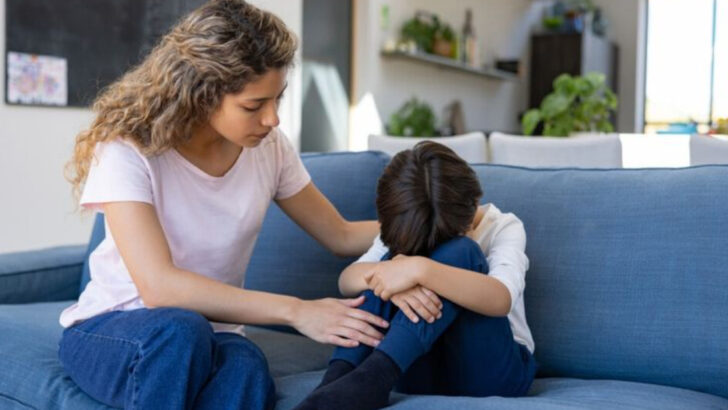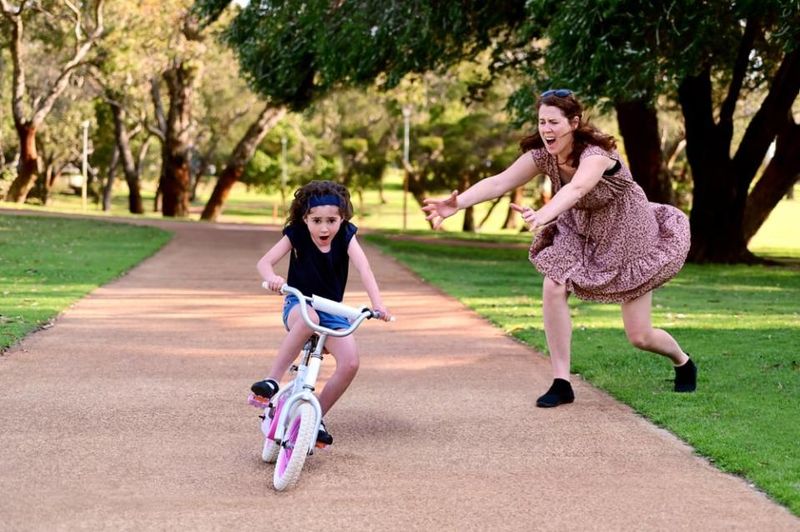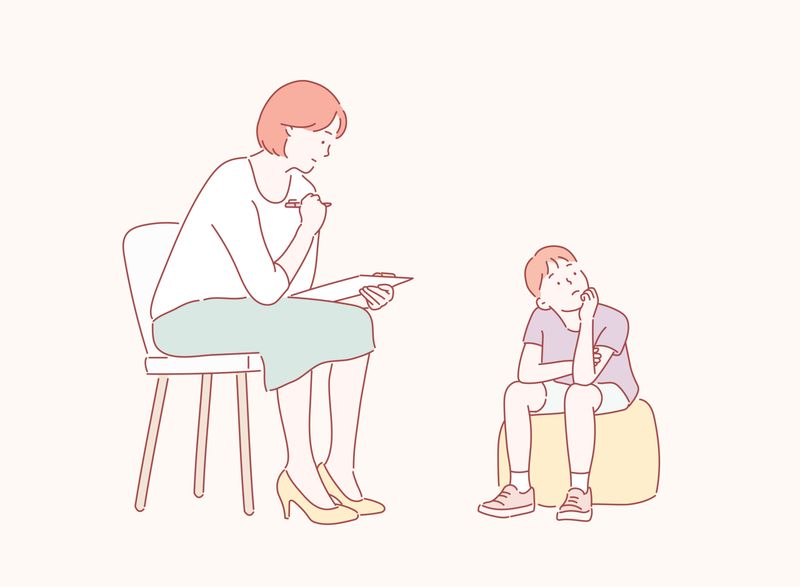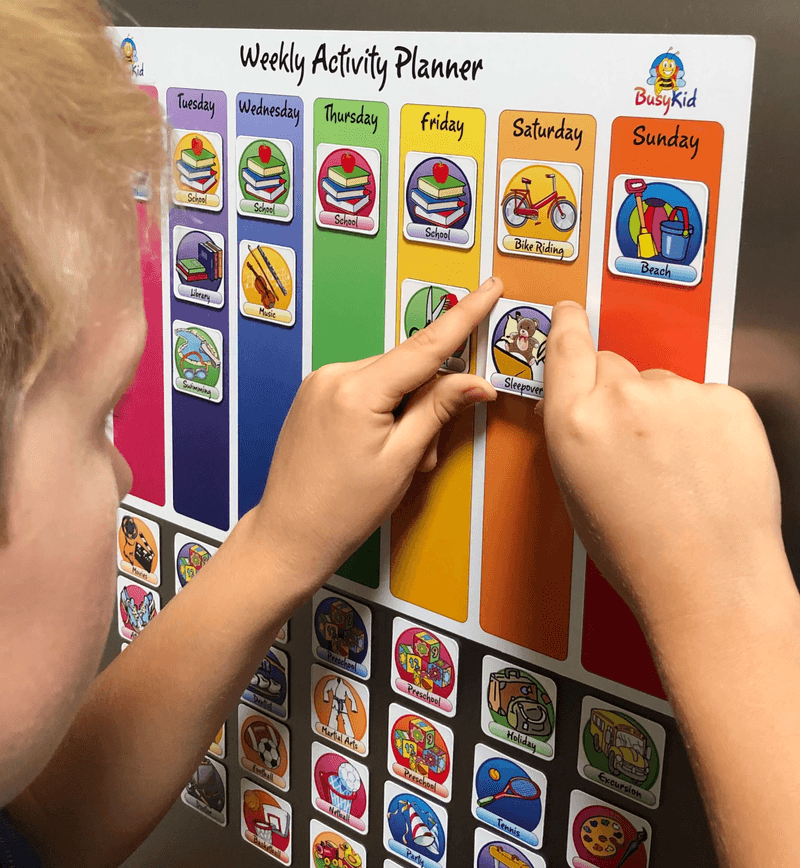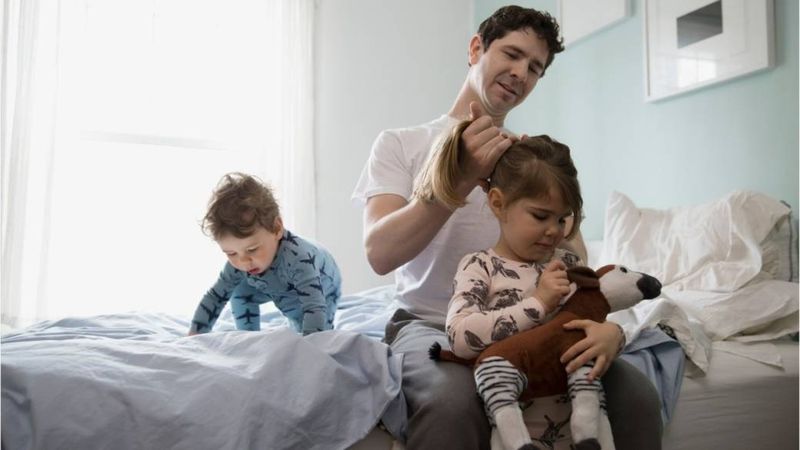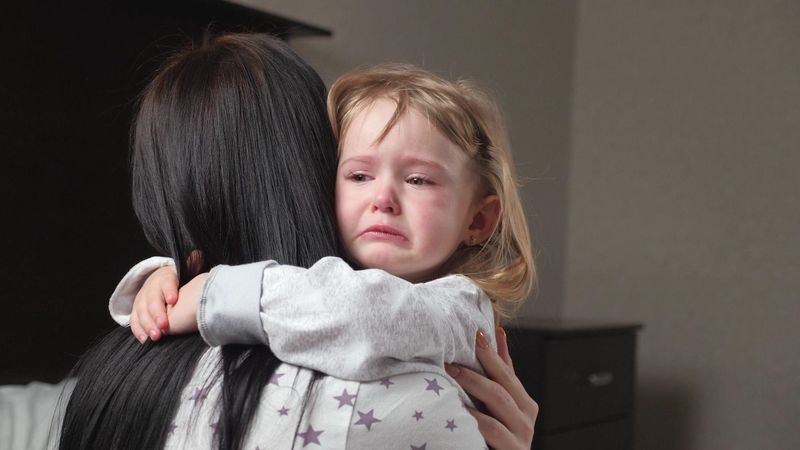Over the past few decades, parenting has undergone significant transformations, reflecting the societal, technological, and cultural shifts that have taken place. These changes have reshaped how parents approach raising children, deal with everyday challenges, and interact with the world around them.
1. Helicopter parenting replaced hands-off styles
Remember the days when kids roamed wild until the streetlights flickered on? Helicopter parenting has swooped in, replacing the hands-off approach many of our parents embraced. Today, parents hover more, often involved in every minor decision of a child’s life. This shift has sparked debates about independence versus involvement. Is it better to let kids make mistakes or guide them at every step?
The impacts are evident in children’s reduced independence and increased anxiety levels. This transformation reflects a broader societal focus on safety and success. However, it also raises questions about resilience and autonomy in children growing up under constant supervision.
2. Screen time replaced outdoor time
Once upon a time, children ran outdoors, entertained by nature and imagination. Now, screens captivate their attention, replacing outdoor play. The digital age has transformed playtime, with tablets and smartphones becoming constant companions for children. While technology offers educational benefits, it also raises concerns about physical health and social skills.
Parents struggle to balance screen time with outdoor activities, often setting strict limits. The ease of digital entertainment is hard to resist, yet the nostalgia for mud pies and tree climbing lingers. This change highlights the ongoing battle between technology and traditional play.
3. Playdates are now scheduled like business meetings
Gone are the spontaneous days of neighborhood kids knocking on doors to play. Today, playdates are meticulously scheduled, resembling business meetings on a crowded calendar. Parents coordinate weeks in advance, balancing multiple activities and commitments. This change reflects the busy lives families lead and the societal shift towards structured childhoods.
The spontaneity of unplanned play is lost, replaced by organized social interactions. While it fosters friendships, it also adds a layer of complexity to childhood. The art of playing freely has been reshaped by modern life’s demands.
4. Gentle parenting entered the chat
Gentle parenting, with its focus on empathy and understanding, has gained popularity, replacing authoritarian methods. Parents now emphasize emotional intelligence, guiding children with kindness rather than strict discipline. This approach nurtures open communication, fostering a strong parent-child bond.
Critics argue it may lead to permissiveness, yet supporters believe it raises emotionally aware individuals. Gentle parenting acknowledges children’s feelings, validating their experiences in a compassionate way. This nurturing method reflects a broader cultural shift towards empathy and mental health awareness, challenging traditional power dynamics within families.
5. Corporal punishment fell out of favor
Corporal punishment, once a common disciplinary tactic, has largely fallen out of favor. Modern parents are turning towards non-violent methods, focusing on communication and understanding. This shift reflects changing societal norms and increased awareness of children’s rights. Research highlighting the negative effects of physical punishment has encouraged this transformation.
Non-violent discipline promotes a respectful dynamic, encouraging children to understand consequences rather than fear them. While some argue for traditional methods, the trend is unmistakable: a move towards more humane parenting practices that prioritize a child’s psychological well-being.
6. Parents are expected to be therapists
In an era where mental health awareness is paramount, parents increasingly act as therapists for their children. This role involves understanding emotional needs, actively listening, and offering support. While this promotes strong family bonds, it can also be overwhelming for parents untrained in counseling.
The expectation to manage emotional well-being adds pressure, yet it reflects a positive shift in recognizing the importance of mental health. Parents today juggle roles, from confidant to counselor, highlighting the evolving nature of family dynamics and the broader societal focus on psychological well-being.
7. Online judgment is louder than family advice
Parenting advice, once shared in family circles, now echoes louder online. Social media platforms are flooded with opinions, often overshadowing traditional wisdom. This shift has made parenting more public, with every decision scrutinized and debated. Online communities offer support but can also lead to judgmental environments.
Parents navigate this digital landscape, balancing well-meaning advice with personal beliefs. The wealth of information is both a blessing and a curse, offering diverse perspectives while amplifying pressure to conform. This change highlights the impact of digital connectivity on parenting, for better or worse.
8. Talking about feelings is finally normal
In past generations, feelings were often brushed aside, but today, expressing emotions is encouraged. Parents foster open communication, teaching children to articulate feelings and empathize with others. This change signifies a shift towards emotional literacy, emphasizing the value of understanding and sharing emotions.
By normalizing these conversations, families build stronger connections and healthier relationships. However, the challenge lies in balancing emotional openness with resilience. This transformation in parenting underscores a broader societal embrace of mental health awareness, teaching children that it’s okay to feel and to talk about those feelings.
9. Birth plans became checklists
Gone are the days of simply waiting to go into labor. Today, expectant parents meticulously craft birth plans, detailing every aspect of delivery. These checklists reflect a desire for control and preparedness in a process historically left to nature. While birth plans can empower, they can also create pressure when things deviate.
This trend mirrors a broader societal shift towards proactive health management.
Parents weigh options, from pain relief to birthing positions, ensuring they are informed participants in the birthing process. The detailed birth plan is a testament to modern parenting’s desire for agency and knowledge.
10. Kids have calendars—like CEOs
Today’s children often have schedules as packed as a CEO’s, juggling school, sports, music lessons, and social activities. This shift towards structured childhoods reflects modern life’s demands and the quest for well-rounded development. While these activities foster skills and interests, they also risk over-scheduling, with little time for relaxation.
Parents walk a tightrope, balancing opportunities with downtime. The rise of the child planner underscores the importance placed on achievement and the pressure to excel. However, it also sparks discussions on the necessity of free play and creativity in a child’s growth.
11. Social media made everyone a parenting critic
The advent of social media has turned parenting into a public spectacle, with everyone having an opinion. This shift has transformed how parents navigate advice and criticism, often facing scrutiny from strangers online. While social media connects parents to communities and resources, it also amplifies judgment and competition.
Every parenting choice becomes a topic of debate, adding stress and self-doubt. This phenomenon highlights the double-edged sword of digital platforms: they offer support yet expose parents to constant evaluation. The challenge lies in discerning valuable insights from the noise of online criticism.
12. Food choices became moral decisions
In modern parenting, food choices are laden with moral implications, reflecting broader societal concerns about health and ethics. Parents face decisions about organic versus conventional, sugar content, and ethical sourcing. This shift towards conscientious consumption mirrors the growing emphasis on sustainability and health.
While some parents thrive on making informed choices, others feel overwhelmed by the constant barrage of nutritional advice. The pressure to make “the right” food choices underscores a greater societal trend towards mindful living, transforming grocery shopping into a moral endeavor as much as a nutritional one.
13. Safety culture shaped every move
The safety culture has permeated every aspect of parenting, from car seats to playground oversight. Parents today are vigilant about potential hazards, often prioritizing safety over exploration. This shift reflects a broader societal focus on risk management and child protection. While it ensures physical well-being, it sometimes limits adventurous play and spontaneity.
Parents navigate a world filled with safety protocols, balancing caution with the need for independence. The emphasis on safety, though well-intentioned, raises discussions about resilience and the importance of calculated risks in child development.
14. Involvement in school became a full-time job
Parental involvement in education has intensified, becoming a near full-time commitment for many. From volunteering in classrooms to engaging in school boards, parents are deeply integrated into their child’s educational journey. This change reflects greater awareness of educational impacts and a desire to support academic success.
While beneficial, it can also be taxing, with parents juggling multiple roles and responsibilities. The increased involvement speaks to the value placed on education, yet it raises questions about the balance between school engagement and personal commitments. The evolving role of parents in schools underscores shifting educational priorities.
15. Dads are parenting more, not just helping
The role of fathers has evolved from merely helping out to being actively involved in parenting. Dads today participate in daily childcare tasks, challenging traditional gender roles. This shift reflects a broader societal move towards equality and shared responsibilities in families. Fathers now engage in cooking, nurturing, and school activities, seeking meaningful connections with their children.
The active dad role dismantles stereotypes, promoting a more balanced family dynamic. This transformation highlights the changing expectations of fatherhood, empowering dads to embrace caregiving roles and redefine masculinity in the parenting sphere.
16. Labels like “neurodivergent” replaced “difficult”
The understanding of children’s behavior has shifted, with terms like “neurodivergent” replacing labels like “difficult.” This change reflects increased awareness of neurological diversity and a move towards acceptance and support. Parents now seek to understand and accommodate diverse needs, often advocating for resources and inclusivity.
The shift promotes empathy and understanding, fostering environments where all children can thrive. By embracing neurodiversity, society challenges past stigmas, encouraging open dialogue about mental health. This transformation underscores a cultural shift towards inclusivity and the recognition of every child’s unique potential.

